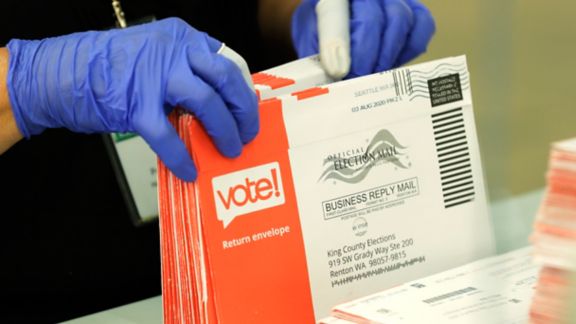The Wall Street Journal/NORC Polling Partnership

In December 2021, Dow Jones & The Wall Street Journal announced the launch of a new polling partnership with NORC at the University of Chicago to conduct surveys on cultural and social issues of importance.
“NORC brings high standards, rigorous methodology, and insightful thinking to its survey work,” said Jerry Seib, former executive Washington editor for the WSJ. “We have been pleased to work with NORC in the past, and are thrilled to expand that cooperation significantly now. This new arrangement will allow us to peer deeply into public opinion on all fronts in the next year’s midterm election season and beyond.”
April 2022
The partnership kicked off in April 2022, when NORC conducted a national survey focusing on Americans’ satisfaction and dissatisfaction with life after two years of COVID disruption, social unrest, and an extended period of high inflation. The poll also looked at Americans’ views on abortion following the Supreme Court’s decision to overturn Roe v. Wade.
June 2022
In June 2022, the WSJ and NORC conducted a national survey in Ukraine that looked at the impact that Ukrainians experienced following Russia’s invasion in February 2022. The survey found that more than half of those surveyed knew someone who had been killed in the conflict or lost a family member. The study also revealed that a large majority of Ukrainians rejected ceding land to reach peace with Russia.
March 2023
In March 2023, a national poll of adults found that the public remains largely negative about the current state of the national economy and pessimistic about the likelihood of both short- and long-term improvements. The data also show that people are divided when it comes to businesses and schools taking steps to promote racial and ethnic diversity.
October 2023
In October 2023, this collaboration surveyed nearly 1,200 voters on a range of issues and beliefs. The WSJ and NORC created separate indexes for views on economic issues, social issues, and faith in civic institutions, placing people on an ideological scale based on their responses. Results show that voters are divided in five ideological categories:
- Traditional liberals, primarily defined by their left-leaning positions on social and economic issues.
- Traditional conservatives, who hold right leaning views on social and economic issues.
- Libertarians, which tend to be economically conservative but socially left-leaning.
- Populists, who are socially conservative but hold some traditionally liberal economic views; and
- Disaffected pluralists, which are economically and socially liberal, but are deeply disillusioned with the political and economic system in the US.
Related Tags
Project Leads
-
Trevor Tompson
Senior Vice President -
Jennifer Benz
Vice President -
Juan Carlos Donoso
Senior Research Scientist
Data & Findings
This Project in the News

The Wall Street Journal

The Wall Street Journal










